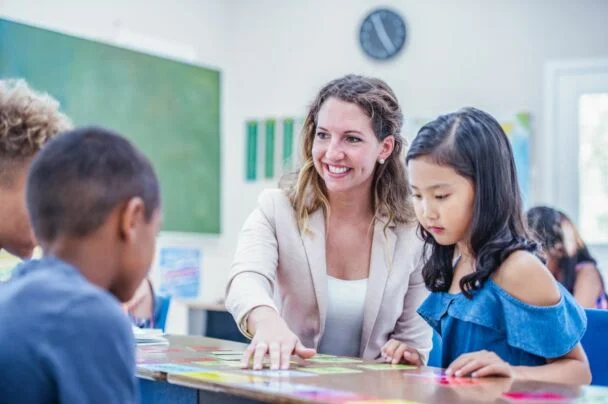Education is more than a classroom experience; it is a lifelong journey that shapes individuals, societies, and economies. From early childhood through to professional development, structured learning equips us with the knowledge, skills, and mindset to adapt in an ever-changing world. This education guide explores the stages of learning, their importance, and strategies to make the most of each phase.
The Foundations of Education
The earliest years of education lay the groundwork for intellectual and emotional growth. During childhood, learning is not confined to textbooks; it is a blend of discovery, socialisation, and skill-building.
Early Childhood Education
This stage focuses on building curiosity, communication skills, and emotional intelligence. Activities such as storytelling, play-based learning, and basic numeracy introduce children to structured thinking. The key benefits include:
-
Developing problem-solving skills
-
Building language and literacy foundations
-
Encouraging creativity and self-expression
-
Nurturing social and emotional resilience
Primary Education
Primary education extends these foundations, introducing subjects like mathematics, science, history, and languages. Beyond academics, it instils discipline and values. At this stage:
-
Reading comprehension and writing become central
-
Numeracy develops into logical reasoning
-
Teamwork and participation in group activities build confidence
-
Basic technology use begins to integrate into learning
Secondary Education: Preparing for the Future
Secondary education bridges childhood learning with adult responsibilities. It is where students explore academic interests and begin shaping their career aspirations.
Lower Secondary
Students encounter a wider curriculum and are encouraged to think critically. The focus shifts from memorisation to applying knowledge in real-life contexts.
Upper Secondary
Here, education becomes more specialised. Students often choose subjects aligned with future careers or higher education. Skills developed include:
-
Critical thinking and independent research
-
Time management and self-discipline
-
Understanding career pathways
-
Exposure to advanced technology and digital literacy
Higher Education: Building Expertise
Higher education marks a transition into advanced learning. Universities, colleges, and vocational institutions prepare individuals for professional careers. This phase emphasises specialisation, research, and employability.
University Degrees
-
Undergraduate programmes provide subject mastery
-
Postgraduate study allows for deeper research and innovation
-
Networking opportunities and internships build industry links
Vocational Training
Not all paths lead to university. Vocational training focuses on practical skills and technical expertise. These qualifications are vital for careers in trades, healthcare, technology, and creative industries.
Lifelong Learning and Adult Education
Learning does not end with formal schooling. Lifelong education is a necessity in today’s knowledge-driven society. Employers value individuals who can adapt, reskill, and continue developing.
Professional Development
Many careers require continuous professional development (CPD). Short courses, workshops, and certifications keep professionals updated with industry standards.
Online Learning
Digital platforms make education accessible from anywhere. Online courses offer flexibility and allow learners to balance work, family, and study.
Personal Growth
Education also supports personal enrichment. Learning a new language, mastering an instrument, or exploring history deepens cultural awareness and self-fulfilment.
The Role of Technology in Education
Technology is transforming education at every stage. It enhances access, personalisation, and collaboration.
-
Digital Classrooms: Virtual platforms connect students and teachers across the globe
-
AI in Education: Adaptive learning systems tailor lessons to individual progress
-
Interactive Tools: Simulations, gamification, and multimedia make complex concepts easier to grasp
-
Open Resources: Free digital libraries and courses provide knowledge without financial barriers
Challenges in Modern Education
While progress is remarkable, education faces significant challenges:
-
Accessibility: Economic and geographical factors create inequalities
-
Curriculum Relevance: Education systems must keep up with evolving job markets
-
Digital Divide: Not all learners have equal access to technology
-
Mental Health: Pressure and competition often impact student wellbeing
Strategies for Effective Learning
Maximising the benefits of education requires deliberate strategies:
-
Set Clear Goals: Define what you want to achieve at each stage
-
Embrace Active Learning: Engage through discussion, practice, and application
-
Balance Theory and Practice: Combine academic knowledge with hands-on experience
-
Develop Soft Skills: Communication, teamwork, and adaptability are as important as technical expertise
-
Seek Mentorship: Guidance from teachers, peers, or professionals can accelerate growth
Education and Career Success
Education is not just about qualifications but about career readiness. Employers seek graduates who demonstrate adaptability, problem-solving, and lifelong learning habits. Effective education prepares individuals to:
-
Transition smoothly into the workforce
-
Pursue entrepreneurship with confidence
-
Contribute to innovation and economic growth
-
Navigate career shifts with resilience
Global Perspectives on Education
Education systems vary worldwide, but the underlying goals remain consistent: to prepare individuals for life and work. Nations with strong education frameworks invest heavily in early years, teacher training, and technology. Global collaboration through exchange programmes and international research enriches education everywhere.
FAQs on Education
What is the difference between education and learning?
Education is structured and formal, often delivered through schools and universities. Learning is broader, encompassing both formal and informal ways of acquiring knowledge and skills.
How important are extracurricular activities in education?
They play a crucial role in developing leadership, teamwork, and creativity. Participation in sports, arts, and clubs complements academic achievements.
Can vocational training replace university degrees?
Yes, for many careers. Vocational training offers direct, practical skills highly valued in industries such as construction, healthcare, and IT, where hands-on expertise is essential.
What role do parents play in education?
Parents are partners in learning. Encouragement, involvement in school activities, and providing a supportive home environment strongly influence student success.
How can I continue learning while working full-time?
Flexible options such as online courses, part-time study, and micro-credentials make it possible to balance professional life with continuous education.

